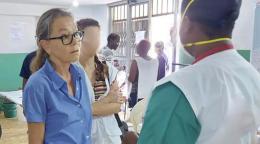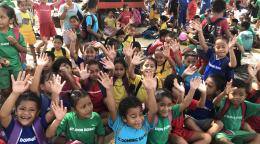Albania Leaps into Lifelong Empowerment
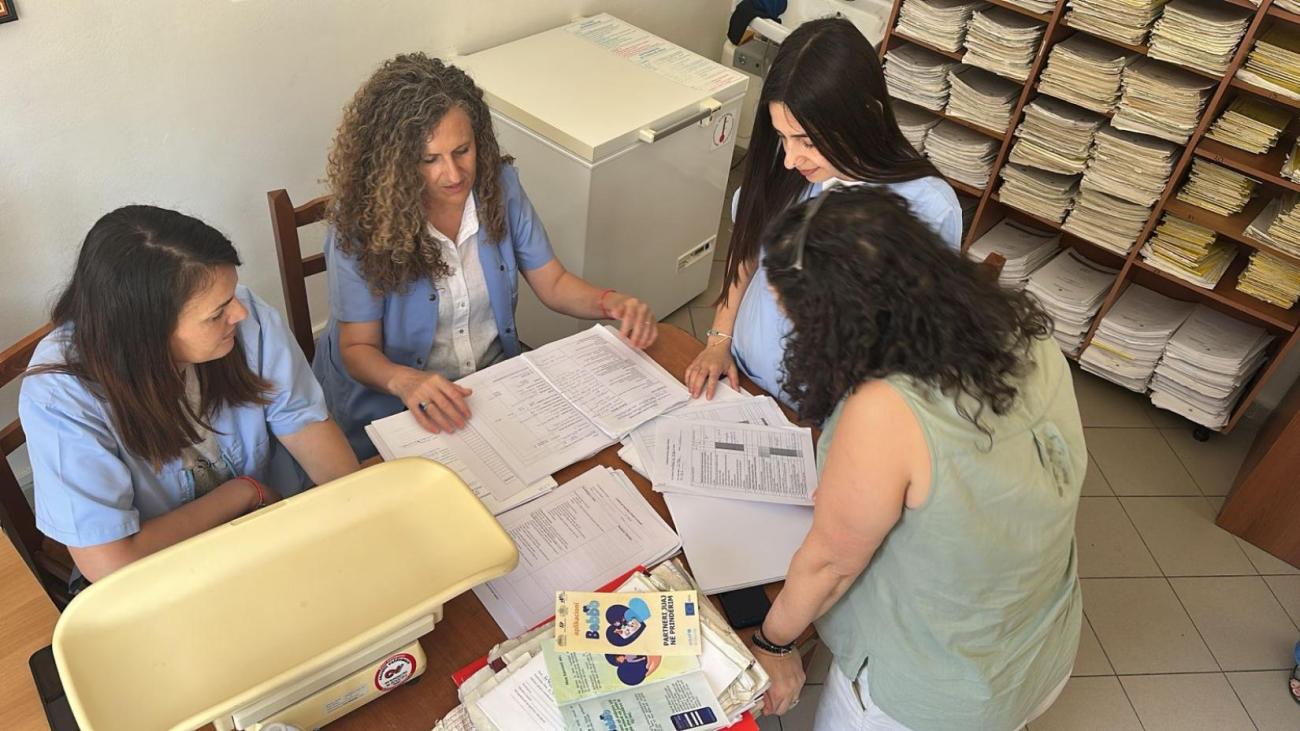
Thelleza Facia, 50, waited ten years for a job that never came. “I looked everywhere. Nothing. Not even hope,” she says.
Then came a phone call. A friend told her about a long-term care training course offered by the UN Development Programme (UNDP). For Thelleza, the course offered more than caregiving skills, such as first aid and medical documentation. It opened the door to new possibilities: she now earns a steady income and works under recognised standards that affirm her dignity and professionalism.
The UN in Albania is transforming lives through innovative, data-driven policies that embed sustainable development across society, with a focus on protecting the most vulnerable. The Resident Coordinator’s leadership helps pool the collective expertise of UN agencies to align with Albania's national priorities, ensuring no one gets left behind.
A powerful example is the Lifelong Empowerment and Protection (LEAP) Albania programme, empowering women like Thelleza to build better futures. LEAP brings together the UNDP, the International Labour Organization (ILO), UN Children’s Fund (UNICEF), and UN Women. The initiative, funded by the Joint SDG Fund, supports the Albanian government's efforts to create lasting change that reaches those who need it most.
Albania faces a triple challenge: 20 per cent of its citizens are over 65; nearly a quarter of young people are not in education, training, or employment; and 20 per cent of the population is below the national poverty line, with children and women particularly at risk. The programme addresses critical socio-economic challenges for the most vulnerable communities, including high youth unemployment, poverty, and inadequate access to quality care services.
“It gives me a reason to leave the house again. I prepare myself every day to serve someone who needs me,” Thelleza says. “We all have our burdens, but this work makes me feel useful.”
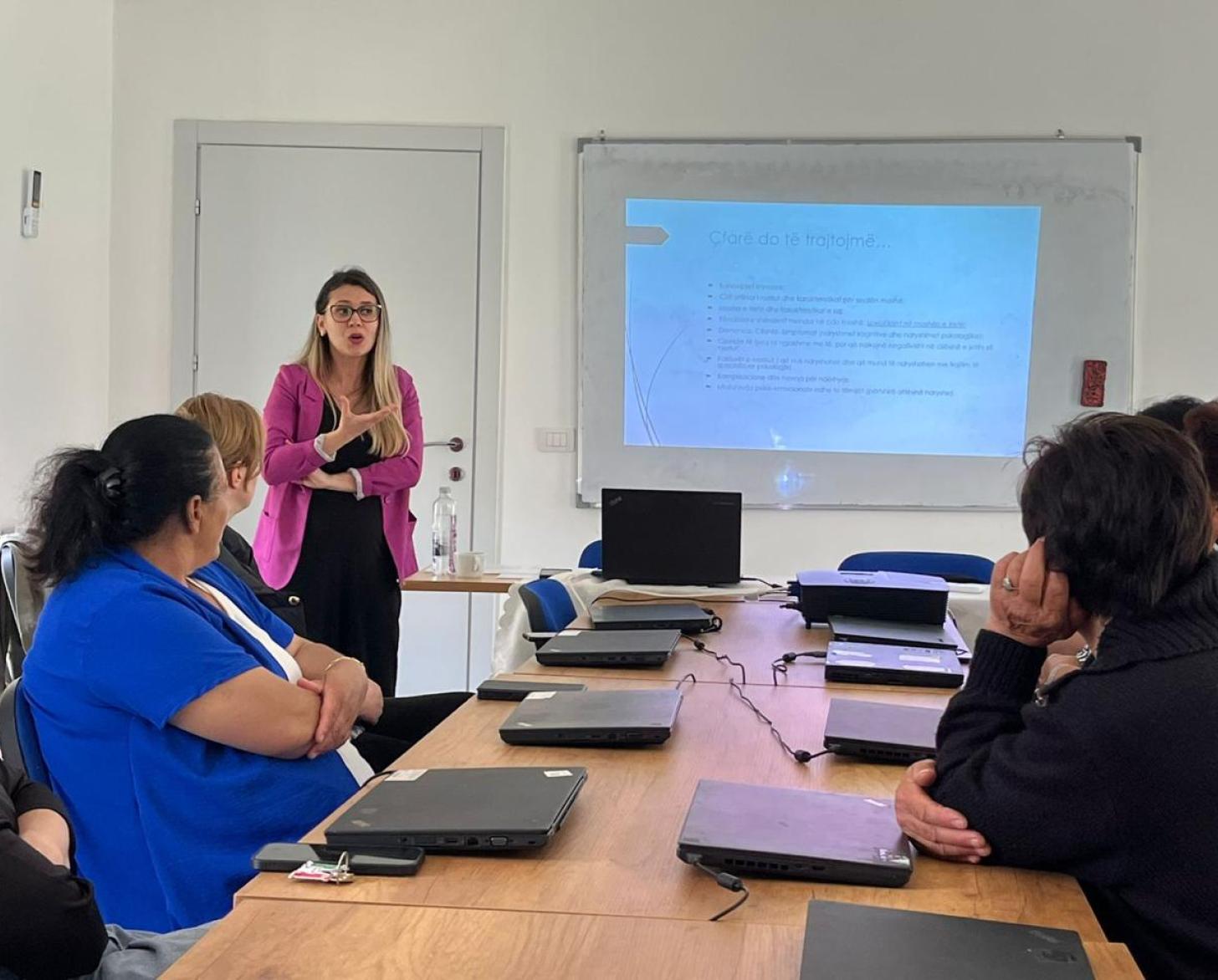
Providing dignified care for the elderly
A UNDP study revealed that Albania is experiencing a critical shortage of formal long-term care services, the heavy reliance on unpaid family caregivers, and the pressing need to professionalise the caregiving workforce.
In response, the UN’s collaboration through this programme is combining workforce development with innovative service delivery for caregiving. A key component is the creation of a vocational training curriculum for “Long-Term Care Assistance,” drafted in line with the National Agency for Vocational Education, Training and Qualifications’ methodology and European standards.
In parallel, the Initiative is designing long-term care service models to fill the service provision gap directly. Three models, namely home-based, community-based and mobile teams, have been developed to simultaneously expand care services for older adults and persons with disabilities while creating paid employment opportunities.
Given that women disproportionately bear the brunt of unpaid care work, UN Women assists UNDP in ensuring that the programme promotes the implementation of inclusive standards in the care sector and facilitates women’s economic reintegration.
“The UN’s unified support, through the Joint SDG Fund, demonstrates how we can connect people to opportunity through decent jobs, inclusive care, and stronger public services,” said Ingrid Macdonald, UN Resident Coordinator in Albania. “This is what SDG acceleration looks like: investing in systems that protect and empower the most vulnerable, while unlocking the potential of future generations.”
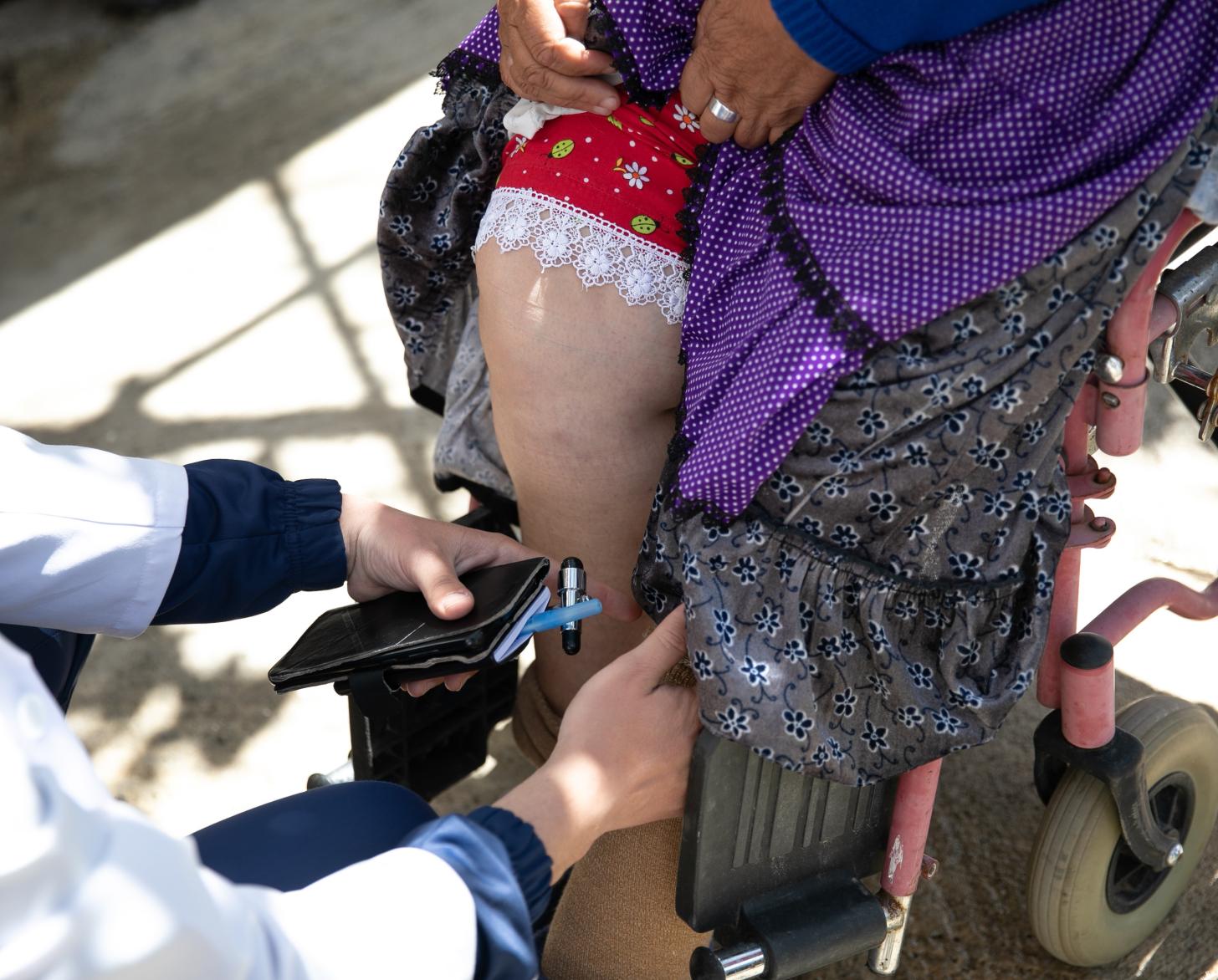
Investing in children
Alongside supporting elderly populations, the programme is also expanding services for children and youth. UNICEF and the Ministry of Health and Social Welfare are working together to implement a Universal Progressive Home Visit model. This is an innovative intervention in which trained health personnel, often nurses and social workers, have already reached nearly 500 children (220 of whom were girls) during more than 650 home visits in Elbasan, Korçë, and Lezhë between December 2024 and June 2025. This model is part of an integrated approach between health and social care services at the local level helping children and families through a tailored approach.
The model holistically helps vulnerable families by supporting child development, parental well-being, early disability detection, and by connecting families to essential services, such as mental health programmes and employment referrals.
The Ministry is also exploring the introduction of a Universal Child Benefit (UCB) mechanism as part of broader reforms to reduce child poverty. This will ensure equitable access and benefits for all children, with a particular focus on girls and children from marginalised communities. This emerges as a key commitment in the country’s National Strategy on Social Protection 2024-2026.
Youth employment as a tool for growth
In addition to assisting children, UNICEF collaborated with Vocational Education and Training centres across multiple municipalities on the “Journey towards Employment,” which has reached over 600 young people not in education, employment, or training (NEETs) with employable skills and psychological aid.
This initiative has made all the difference for youth like Ana, a young mother from Elbasan whose education was cut short after financial hardships in her family.
She left school before completing the Ninth grade and, for a long time, believed that her door to learning and employment had closed forever.
But change came when Ana joined the programme. Today, she is preparing to re-enter formal education through vocational training, determined to finish what she started and build a better life for her child.
Complementing this, ILO is playing a transformative part in addressing pervasive informality in Albania’s tourism industry. In collaboration with the Ministry of Economy, Culture, and Innovation, as well as stakeholders across the private sector, academia, and civil society, ILO is co-developing a Roadmap for Employment and Formalization in Tourism to promote decent work and sustainable growth.
Since tourism is one of Albania’s biggest industries, a local grant programme in Lezha and Vora is making it easier for people to access job training and career support, especially in tourism and hospitality. Run by non-profit organisations such as World Vision and Elite Travel Group, the programme offers hands-on training, mentoring, and job placement services to over 300 people, including vulnerable community members, women, youth, and those receiving economic aid.
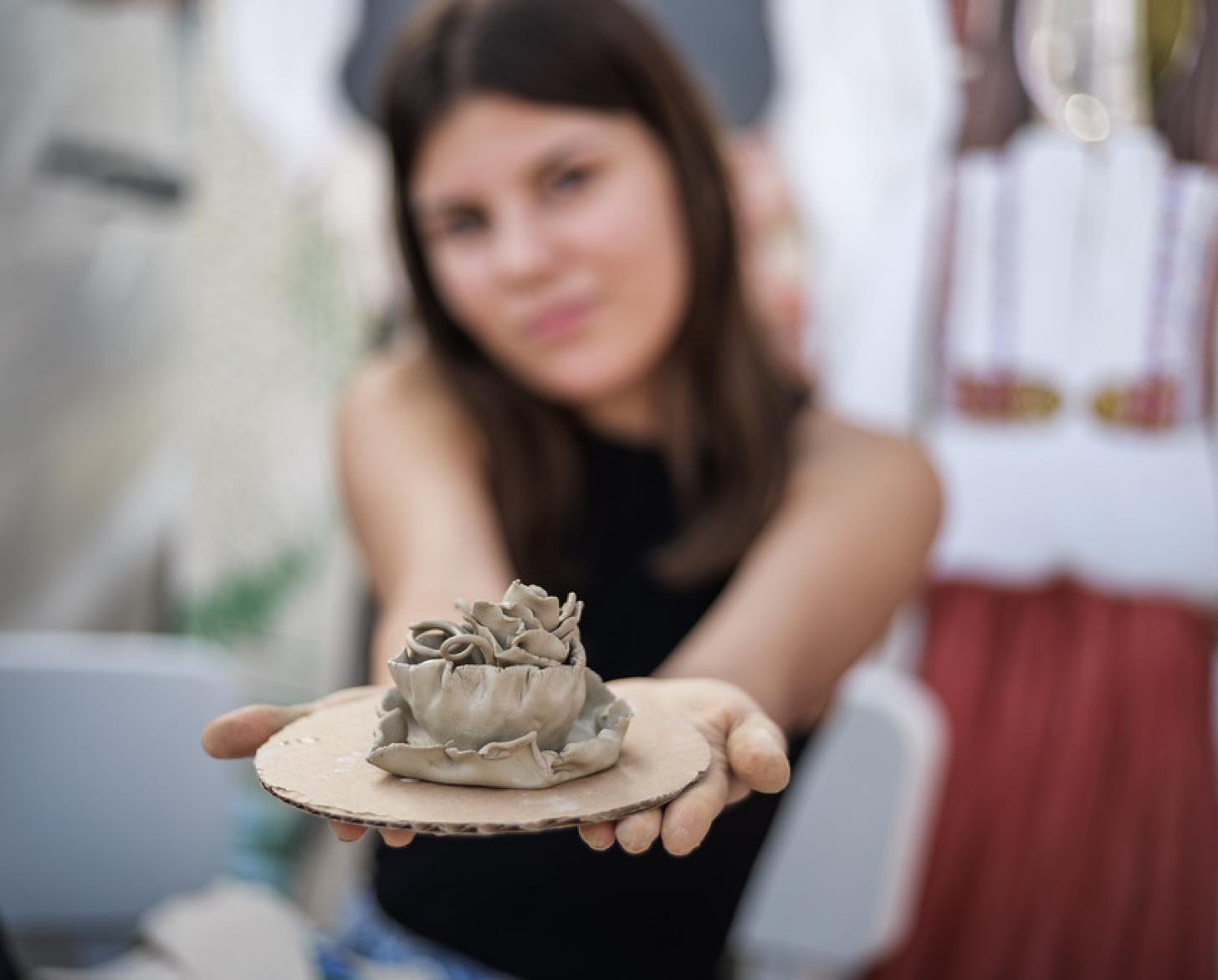
Action for tomorrow
These programmes encapsulate the essence of this week’s World Social Summit in Doha. Governments and partners will recommit to scaling up poverty eradication, social integration, and full and productive employment and decent work for all.
Albania’s success illustrates the power social development can unlock synergies for the future: with the leadership of the Resident Coordinator and the expertise of UN entities, Government and partners are ensuring hundreds of vulnerable and localised communities leap into an empowered future.







